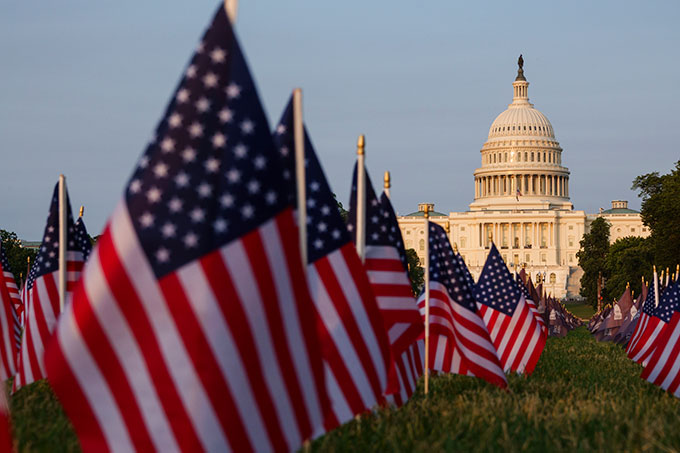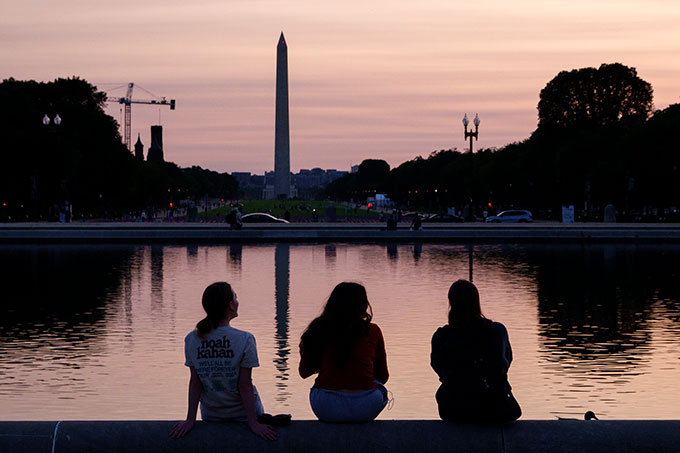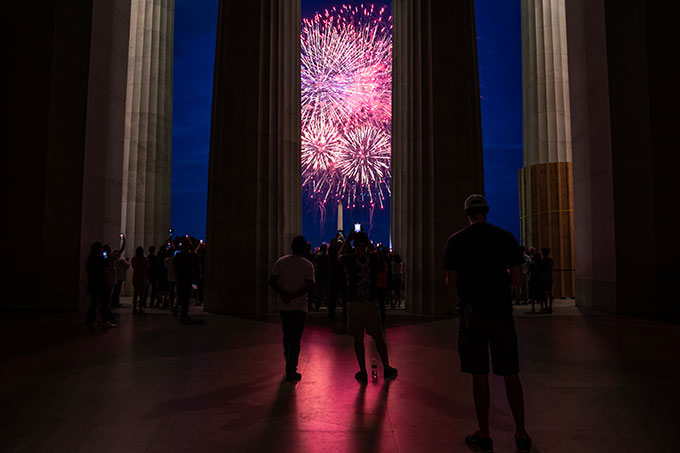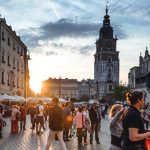America, I sometimes worry, has gone out of fashion. Recent polling from Gallup finds that just 58 percent of Americans report that they are “very” or “extremely” proud to be an American—the lowest figure on record, down from a peak of 91 percent post-9/11. The trend is driven by Democrats, just 36 percent of whom are proud to be American. But warning signs have appeared on the Right, too: while about 90 percent of older Republicans report American pride, the figure for GOP Zoomers is just 65 percent.
While the United States sometimes comes in for a bashing on the left and right, you won’t see it happen at City Journal. Whether it’s hip or not, we’re still happy to profess the greatness of America. This Independence Day, we’ve asked six regular contributors to answer a simple question: Why do you love America? We hope you’ll enjoy their answers.
—Charles Fain Lehman, senior editor
I should just say that I love America because America is a nation of strivers, because that is straightforward and true. But there’s another reason that comes to mind: I love America because I see it through my father’s eyes.
When I was a teenager, I asked my father how long it took him to feel at home in the United States. He told me that it didn’t take him any time at all—that he felt more at home in New York than he ever had in his native country.
This didn’t surprise me, exactly. Though my father never lost his strong Bengali accent, and though he had a lifelong love for the Bengali language and literary tradition, he had what I think of as a broad, open, democratic American demeanor. He was the kind of person who’d chat up servers in restaurants, gas station attendants, and other strangers, often to my chagrin. He’d tell jokes in languages I didn’t know he could speak. He was an explorer. As a graduate student in Indiana in the late 1960s, he’d go on long drives to Louisville and Chicago to check out the scene. After a stint in Karachi, he spent time in Holland and Hong Kong—a long way to go for a young man from a tiny island in the Bay of Bengal. But it is America where he found himself, and where he devoted so much energy and effort to helping other strivers make their way.
Unlike my father, I’m not much of an explorer. He had to leave home to find home. I have the good fortune to have been born here. And as he explained to me very clearly, I can never take that for granted.
In the mid-1960s, my grandfather, born and raised in India, won a scholarship to study psychology at DePaul University in Chicago. Shortly after he arrived in the United States, my grandmother and father left Jhansi, a city in the north of the country, to join him. For years, the three of them—and later my uncle, the first member of my family born on American soil—shared a one-bedroom apartment in the Windy City.
Then, in 1995, came my mother, a 25-year-old accountant who had never set foot on a plane, let alone left India. Suddenly, she found herself in Brookline, Massachusetts, married to a budding cardiologist who loved the Chicago Cubs, Dunkin Donuts coffee, and the occasional cheeseburger. To this day, my mother calls Brookline her “Plymouth Rock.”
Life wasn’t always easy. But a bad day in America, my grandparents, Thamma and Dadu, repeatedly told me, was better than a good day anywhere else. Nikki Haley, the daughter of Indian immigrants herself, has said something similar.
I love America because here, in 2025, stories like my family’s are common—so much so that college admissions officers apparently tired of hearing them.

There’s a scene in the old HBO series The Newsroom in which Jeff Daniels’s character—cable news host Will McAvoy—gets a question from an audience member during a university panel event: Why is America the greatest country in the world? The scene went viral due to McAvoy’s angry and condescending response, which began, “It’s not the greatest country in the world.” McAvoy continued by deriding another panelist for suggesting that the answer was freedom: “207 sovereign states in the world, like 180 of ‘em have freedom.”
But he was wrong.
The protection of freedom in America—as a concrete set of rights defined by enforceable limits on government power set out in a Constitution—is unique. It’s why we don’t have police serving warrants for “offensive” social media posts, as we’ve seen in the U.K. It’s why two police officers in Los Angeles would carefully fold a discarded American flag during the recent riots. It’s why we still stand for the National Anthem. It’s why so many—especially soldiers and police officers—have risked their lives in service to their fellow citizens. And it’s why I will always love this great country.
Some of the first songs I learned as a kid were public school staples: “Fifty Nifty United States,” “This Land is Your Land,” and—growing up in Western New York—“Fifteen Miles on the Erie Canal.” If these songs didn’t catalyze my love of American music, they certainly laid a foundation for it.
In middle school, I picked up the bass guitar, inspired by the Red Hot Chili Peppers’ Flea. My dad and I bonded over Talking Heads and Bob Dylan, my mom and I over Luthor Vandross. At sixteen, I passed my driver’s test; feeling liberated, I drove for hours blasting Bruce Springsteen through rolled-down windows. Today, my siblings and I trade favorite tunes constantly, with Taylor Swift—herself named after James Taylor—often dominating.
American music has connected me to family, place, and identity, as it has for prior generations.
Much of American music has roots in adversity: slavery, poverty, and protest. But our music reflects America’s necessity. The United States was founded with a unique aspiration: to become a more perfect union. We’re afforded freedoms for that purpose, which allow the messages in our music—both critical and hopeful—to be heard.

They say converts are the most zealous, so it’s perhaps no surprise that, as a naturalized citizen, I wear my patriotism on my sleeve. Indeed, like most immigrants, I do a job most native-born Americans won’t: defending the Constitution.
But beyond the red-white-and-blue accessories and star-spangled dad jokes, I love America because it’s still man’s last best hope for freedom and opportunity. Just as the dollar is the world’s reserve currency, the United States is the destination most people in the world would move to if they could or had to.
America isn’t perfect—our elites have failed to such a degree that we have lower institutional trust than at any time since Vietnam and Watergate—but it’s still the place to go for realizing one’s ambitions. It’s also the place where anyone can find a home and become just as American as people who trace their lineage back to the Mayflower.
Most importantly, I love America the idea. Not its politicians or entertainers, business leaders or public intellectuals, and not even its archetypes like cowboys and cheerleaders. “Life, liberty, and the pursuit of happiness” is what I love, as secured by the rule of law.

America was my home even before I set foot here. Growing up in Venezuela, I longed for the freedom that America promised—freedom I was denied as my homeland collapsed under socialism. Like America, Venezuela once was a nation of immigrants, welcoming my grandparents from Europe. But I watched that promise eradicated by socialist tyranny, as our country suffered blackouts, food shortages, widespread crime, and hyperinflation. When I arrived in the United States nine years ago, I never felt like a foreigner. Unlike many Venezuelans who resettled elsewhere, even in Spanish-speaking countries, here I found belonging, opportunity, and a duty to help preserve the liberty that embraced me. America’s founding ideals—proclaimed on Independence Day—are not just for her own people but for all who seek them. History suggests that God gave America a special role among nations: to inspire and defend freedom. On this Independence Day, we should be profoundly grateful for the blessing of living in America—and rededicate ourselves to safeguarding the liberty that makes it exceptional.
Top Photo by Probal Rashid/LightRocket via Getty Images















